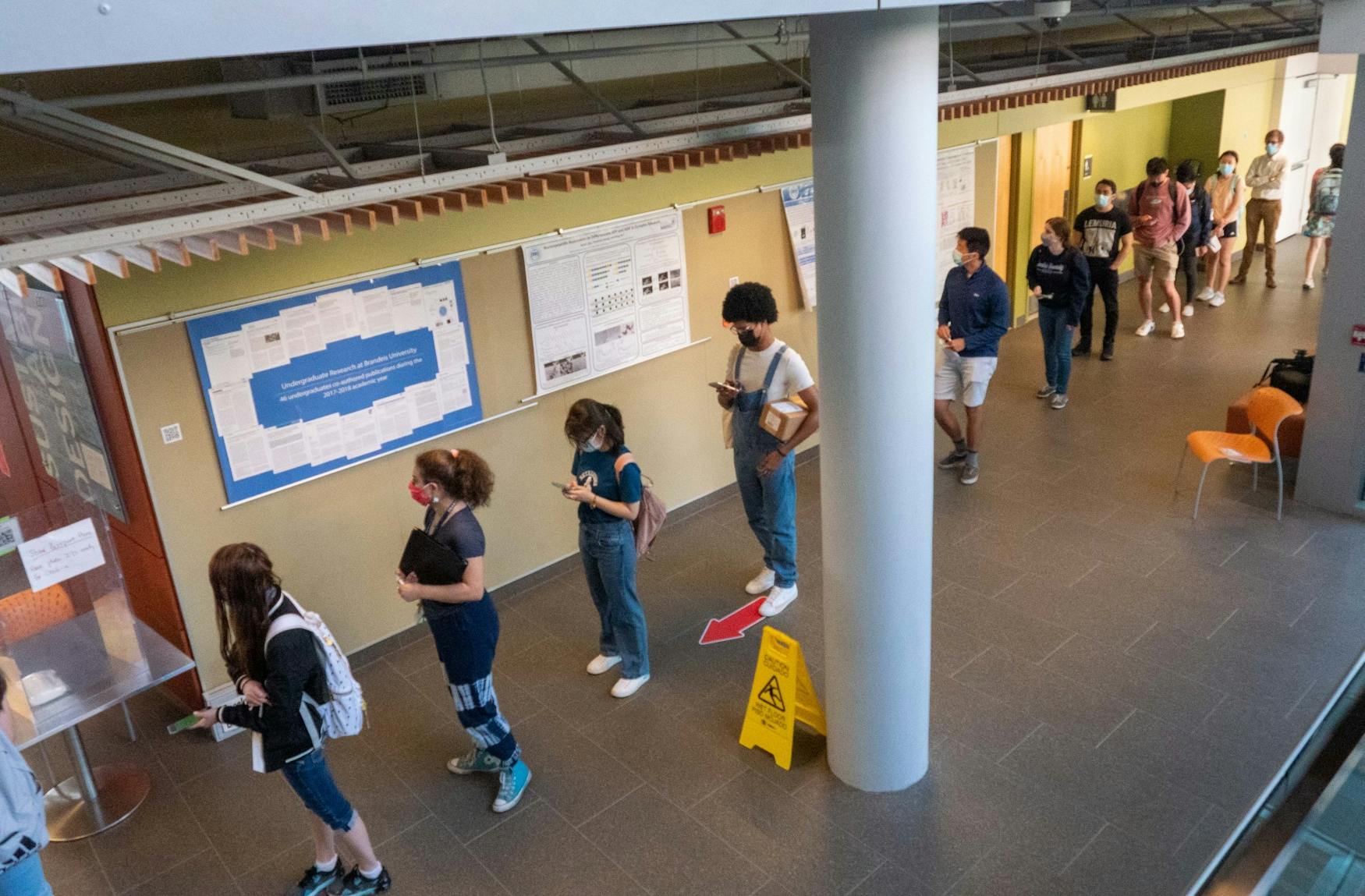University must be proactive in its testing and contact tracing protocols
In a reversal of policy that was surprising to almost no one, on March 16 the University restored the 96-hour testing window requirement that has been in place for much of the pandemic. This change came less than a week after a sternly worded email from the administration regarding a rise in positive cases and close contacts, and only 11 days after the testing window was reduced to 168 hours. This board had previously questioned the sensibility of reducing testing frequency at the same time as lifting the campus-wide mask mandate. While we appreciate that community members have been able to continue to test at any chosen frequency, we believe that this campus-wide requirement is best-suited to keep everyone safe.
Given the return to twice-a-week testing, this board calls for the reopening of a secondary testing site at the Mandel Center for the Humanities or elsewhere. While consolidation to a single, centrally-located testing site made a degree of sense alongside more infrequent testing, long lines are sure to await the community in the Shapiro Science Center given the return to twice-a-week testing. A secondary testing site also creates more opportunities for student employment, which was reduced with the closure of the Mandel Center testing site on March 4.
Testing changes aside, this board continues to take issue with the Brandeis Community Tracing Program, particularly as the number of students being identified as close contacts has increased in recent weeks. While it is a responsibility that we must all be willing to bear, quarantining is undoubtedly a burden. Consistency, clear communication, and easy access to informed staff would all be features of a successful program, but time-after-time, community members have had less-than-satisfactory experiences.
For example, in a March 17 email to the Justice, leadership of Banshee — the Women’s Ultimate Frisbee team — explained that the entire team was contacted via email by the contact tracing team and told to enter close-contact quarantine. The initial email from the BCTP made no reference to the team and was received by both students abroad and those who had not attended a Banshee event since the beginning of the semester. Banshee leadership explained that “BCTP seems to have gotten access to the email list via Presence,” the campus involvement management system used by the University, on which all students are required to register for the individual club sports that they participate in.
Students who received the email in error were instructed to contact the team’s coach who would provide clarification to the BCTP, but leadership pointed out that the students who had left the club were “least likely to know how to reach coaches.” After much back and forth — including leadership sending the BCTP attendance records of multiple recent events — another email was sent to the entire email list clarifying the specific event that necessitated quarantining and restoring the green campus passports of those not in attendance at that event. Meanwhile, this board is and has been aware of several students who satisfy the BCTP’s definition of a close contact who have not yet been contact traced.
While we understand the necessity of acting quickly to move students into quarantine to slow spread, this board criticizes the carelessness of the BCTP in this situation. Rather than blanketly placing an email list into quarantine, they should have reached out to either the leadership email or the team’s coach to obtain attendance records for the event in question and proceeded from there. Considering the difficulty in reaching the contact tracing team — they have no publicly listed phone number — students contacted both the Health Center and Dean of Students office, which each had only limited information. Given the importance of the BCTP’s work, we call for improvements to their processes to reduce confusion and anxiety among the student body and increase efficiency in fighting COVID-19.




Please note All comments are eligible for publication in The Justice.